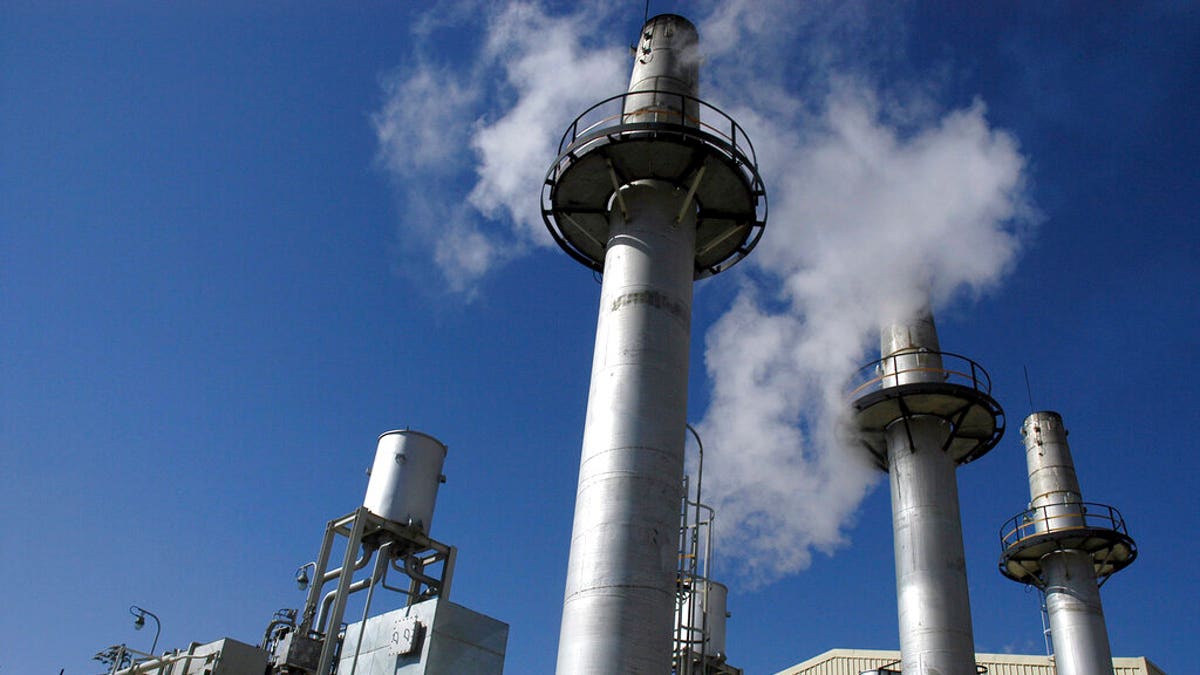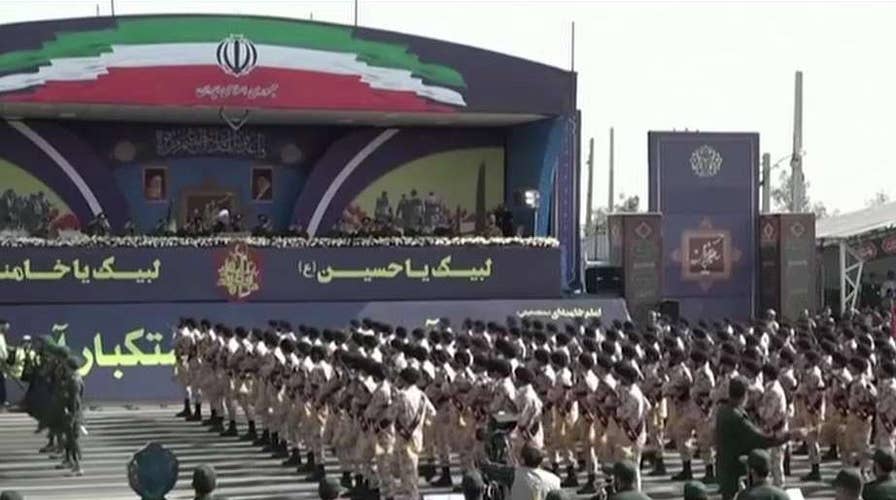Iran claims to have thwarted another major cyberattack on its government servers
Officials in Tehran says they believe the source of the attack was likely another foreign government. Trey Yingst reports.
Iran has begun operating a secondary circuit at one of its heavy water nuclear reactors as part of its efforts to redesign under the 2015 nuclear deal, the country’s atomic energy chief said on Monday.
Though the activity at the Arak heavy water reactor's secondary circuit doesn't violate Iran's 2015 nuclear deal with world powers, it does inch Tehran's nuclear program closer toward weapons-grade levels.

FILE: An exterior of the Arak heavy water production facility in Arak, Iran, 225 miles southwest of Tehran. (AP)
Ali Akbar Salehi explained on state TV that the secondary circuit transfers heat to the reactor's cooling system, adding that the entire reactor system will go online in 2021.
Heavy water helps cool reactors and produces plutonium as a byproduct that can potentially be used in nuclear weapons. Iran has repeatedly maintained its nuclear program is for peaceful purposes.
Britain is helping Iran redesign the Arak reactor to limit the amount of plutonium it produces. London has filled the void created after President Trump unilaterally withdrew the U.S. from the nuclear deal last year.
Monday’s operation was seemingly designed to ramp up pressure on Europe to find an effective way around U.S. sanctions that block Tehran's oil sales abroad.
Tehran has slowly stepped up violations of the 2015 deal to pressure world powers to provide more incentives to make up for the U.S. withdrawal. American economic sanctions are having a crushing effect on Iran's economy.
US SANCTIONS IRANIAN ‘DEATH’ JUDGES, BUT HOW MUCH IS LEFT TO TARGET BEFORE THE COUNTRY CRUMBLES?
Adm. Ali Shamkhani of Iran's Supreme National Security Council warned on Sunday that his country will take another step in "lowering its commitment to the deal if Europe does not implement its commitments."
The International Atomic Energy Agency, the U.N.'s nuclear watchdog, said last month that Iran breached another limit of the nuclear deal by stockpiling more heavy water than the accord allowed.
CLICK HERE TO GET THE FOX NEWS APP
Washington renewed sanctions waivers in November that allow Russia and other European nations to conduct civilian nuclear cooperation with Iran, specifically the redesign work to continue at the Arak reactor and at the Fordo uranium enrichment facility. Both sites are monitored by the IAEA.
The Associated Press contributed to this report.









































